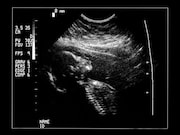Adverse outcomes seen at birth and in preschool and school-aged children
TUESDAY, July 2, 2019 (HealthDay News) — In utero exposure to opioids is associated with higher risks for short- and long-term adverse outcomes, including preterm birth and neurodevelopmental and physical health disorders in children, according to a study published online June 28 in JAMA Network Open.
Romuladus E. Azuine, Dr.P.H., R.N., from the U.S. Department of Health and Human Services in Rockville, Maryland, and colleagues used data from the Boston Birth Cohort, an urban, low-income, multiethnic cohort that enrolled 8,509 mother-newborn pairs at birth at the Boston Medical Center starting in 1998. In addition, a subset of 3,153 children were prospectively observed at Boston Medical Center pediatric primary care and subspecialty clinics from birth to age 21 years.
The researchers found that overall, 5.3 percent of children had in utero opioid exposure. Opioid exposure at birth was associated with higher risks of fetal growth restriction (odds ratio, 1.87) and preterm birth (odds ratio, 1.49). Furthermore, among preschool-aged children, opioid exposure was associated with increased risks of lack of expected physiological development (odds ratio, 1.80) and conduct disorder/emotional disturbance (odds ratio, 2.13). Among school-aged children, there was a higher risk of attention-deficit/hyperactivity disorder with opioid exposure (odds ratio, 2.55).
“Efforts to prevent the opioid epidemic and mitigate its health consequences would benefit from more intergenerational research,” the authors write.
Copyright © 2019 HealthDay. All rights reserved.








